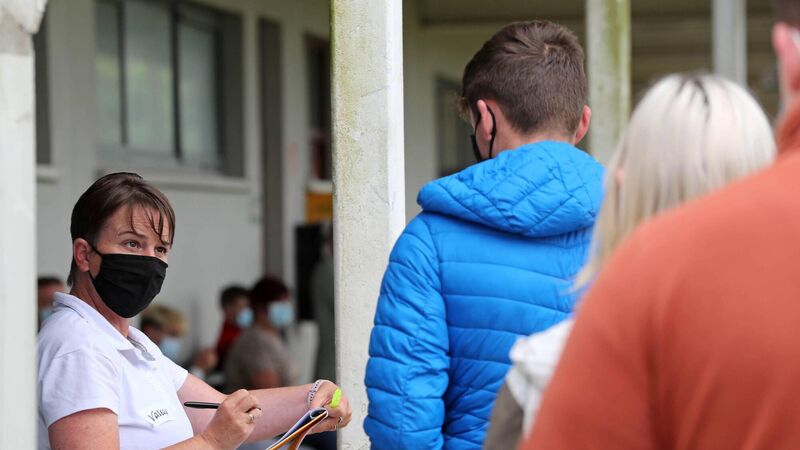'Benefits outweigh the risks' for children aged 12-15, says NIAC in Covid vaccine decision

People arrived at Clonakilty GAA club for a Covid-19 walk-in vaccination over the Bank Holiday weekend. Picture: Jim Coughlan.
The National Immunisation Advisory Council (NIAC) is advising parents of children aged 12-15 set to receive an mRNA Covid vaccine to avail of the jab as the "benefits outweigh the risks".
Chair of NIAC, Professor Karina Butler, said she "can understand why parents might be hesitant" but said the health risks posed by the virus for children in this age cohort are greater.










